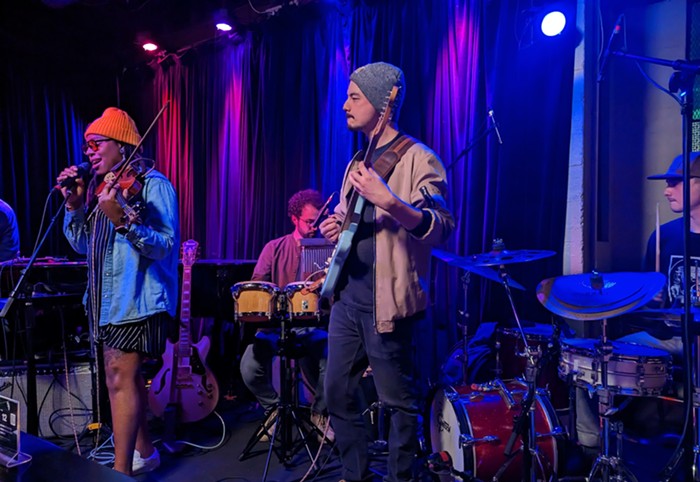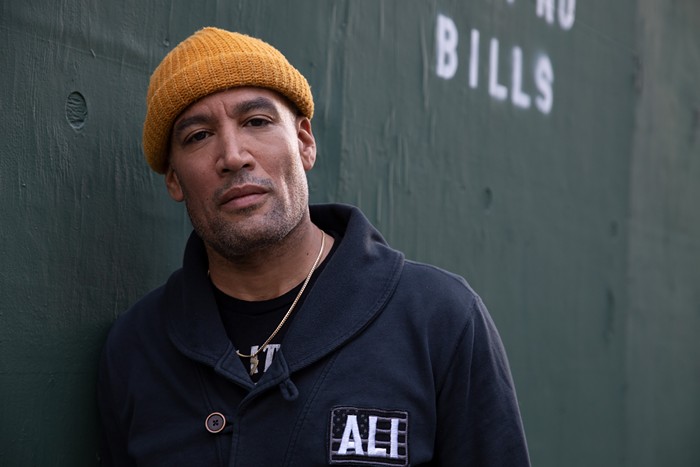Years ago, In the evening when her parents were asleep, a teenaged Haley Bonar (stop snickering—it rhymes with honor) would softly tiptoe out the door and quietly disappear into the thick darkness of the South Dakota night. While there are far more dangerous late-night destinations than the lulling predictability of the Midwestern plains, Bonar kept these pilgrimages a secret. So much so that when explaining her curfew-violating past over the phone—while visiting her mother's home back in the inaccurately named Rapid City, South Dakota—Bonar's voice grows cautiously quiet, as if, after all these years, she might be overheard and retroactively punished.
"In high school I had a radio show at the college station from midnight to 3 am on Saturdays," explains the singer, before admitting the real reason for her slightly hushed tone. "My parents never knew about it." Fueled by a Dewzer ("a 40 ouncer of Mountain Dew we bought at the gas station"), Bonar and a friend would take turns broadcasting "punk and folk" songs deep into the night's airwaves. It was then—in this unfortunate timeslot and armed with the wealth of a college radio station's catalog of records—that the allure of independent music took root within the teenager.
For Bonar, this was not a casual interest but a lifelong obsession. These were the same sort of roots that convince you to drop out of college (she did), catch the attention of Low's Chairkickers imprint (they released her debut album), conquer the Minnesota music scene while touring the globe (this came next), and finally pull up stakes, leave your backing band in the dust, and relocate to Portland (she just did this).
If you've ever witnessed a Land of 10,000 Lakes winter, Bonar's move west is self-explanatory, as she explains with a Midwest accent that is (thankfully) more Marge Gunderson than Sarah Palin. "I've lived in Minnesota for eight years, and I was just sick of the winter and ready to move somewhere new." In tow with Bonar is Big Star, her marvelous 2008 record that's often credited with dragging her from the role of talented Midwest gem to that of nationally respected artist.
Bookended by a pair of songs about boys—the sleepy-eyed "Green Eyed Boy" opens the album, while the lonesome "Tiger Boy" closes things out—Big Star works with both the revisionist rural country of Lucinda Williams and the wounded, forgotten folk of Karen Dalton. In "Better Half," Bonar tackles the less-than-graceful art of aging in rock culture ("What happened to you?/You used to be punk"); then there's the tempered grace of the Aimee Mann-influenced "Arms of Harm," and the resonating title track. Bonar's lovely voice is the centerpiece of Big Star, with a warm and hearty delivery that's as welcoming as a heroic slice of Americana apple pie left to cool on the sill.
Bonar is currently trotting out new material (the sprawling beauty of the unreleased "Anyway, Rattlesnake" might be her best song to date) while working on writing the body of a full-length that will have the unenviable task of following Big Star. And then there's that whole trying to find footing in a new city thing. "I'm just kind of feeling it out right now," she explains. "It's good to write in a new environment, so that's my goal."



















